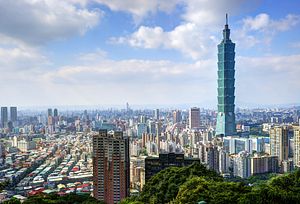Your weekly round-up of China news:
Taiwan is interested in joining the Beijing-led Asian Infrastructure Investment Bank (AIIB) – if it’s invited. As the Taiwanese China Post reports, Taiwan’s Finance Minister Chang Sheng-ford told legislators on Thursday that “Taiwan is willing to join [AIIB] upon invitation.” Joining AIIB “would open up a very good channel for investment,” he added. But Chang also noted that Taipei has not yet received an invitation. Chang’s remarks come after the Mainland Affairs Council, which handles cross-strait relations, said that Taiwan’s stance on the AIIB would be determined by the Finance Ministry.
Mainland China’s state-run news agency, Xinhua, also reported on Chang’s comments. It’s unclear, however, if Beijing will allow Taiwan to join in. So far, AIIB membership has been limited to countries – a term Beijing resolutely refuses to apply to Taiwan. For example, Taiwan is not a member of the IMF or the World Bank due to Chinese objections, but it is included in APEC (because APEC is defined as a grouping of Pacific economies rather than countries.) Unless the AIIB members are defined using similar language, Taiwan’s participation won’t get off the ground.
Meanwhile, Reuters reports that Australia is moving closer to joining AIIB, with a decision possible after a Monday cabinet meeting. And in a surprising twist, even Japan seems to be considering the possibility of joining, although Abe’s administration described its stance toward AIIB participation as “cautious.”
In other news, Xinhua reports that China and Russia recommitted to jointly celebrating the 70th anniversary of the end of World War II. That includes an exchange of visits by top leaders, with Chinese President Xi Jinping expected to go Moscow in May and Russian President Vladimir Putin to return the favor by attending a Chinese military parade. Putin told a senior CCP official in Moscow that China and Russia’s joint celebrations “would help safeguard world peace against attempts to distort history and glorify invaders,” according to Xinhua.
The Wall Street Journal reports the ties between China and Hollywood are growing, with two major Chinese firms announcing co-production and co-financing deals with U.S. film studios. However, neither Chinese company would release the names of their supposed U.S. partners. Hollywood’s growing interest in China – now the world’s second largest movie market – is reflected in more films incorporating Chinese settings and actors.
Finally, last weekend Chinese Premier Li Keqiang gave his annual press conference at the closing of the National People’s Congress. South China Morning Post has a round-up of what Li said – and, perhaps most interestingly, what he didn’t say (from mentioning Hong Kong’s Occupy Central protests to talking about territorial disputes).

































